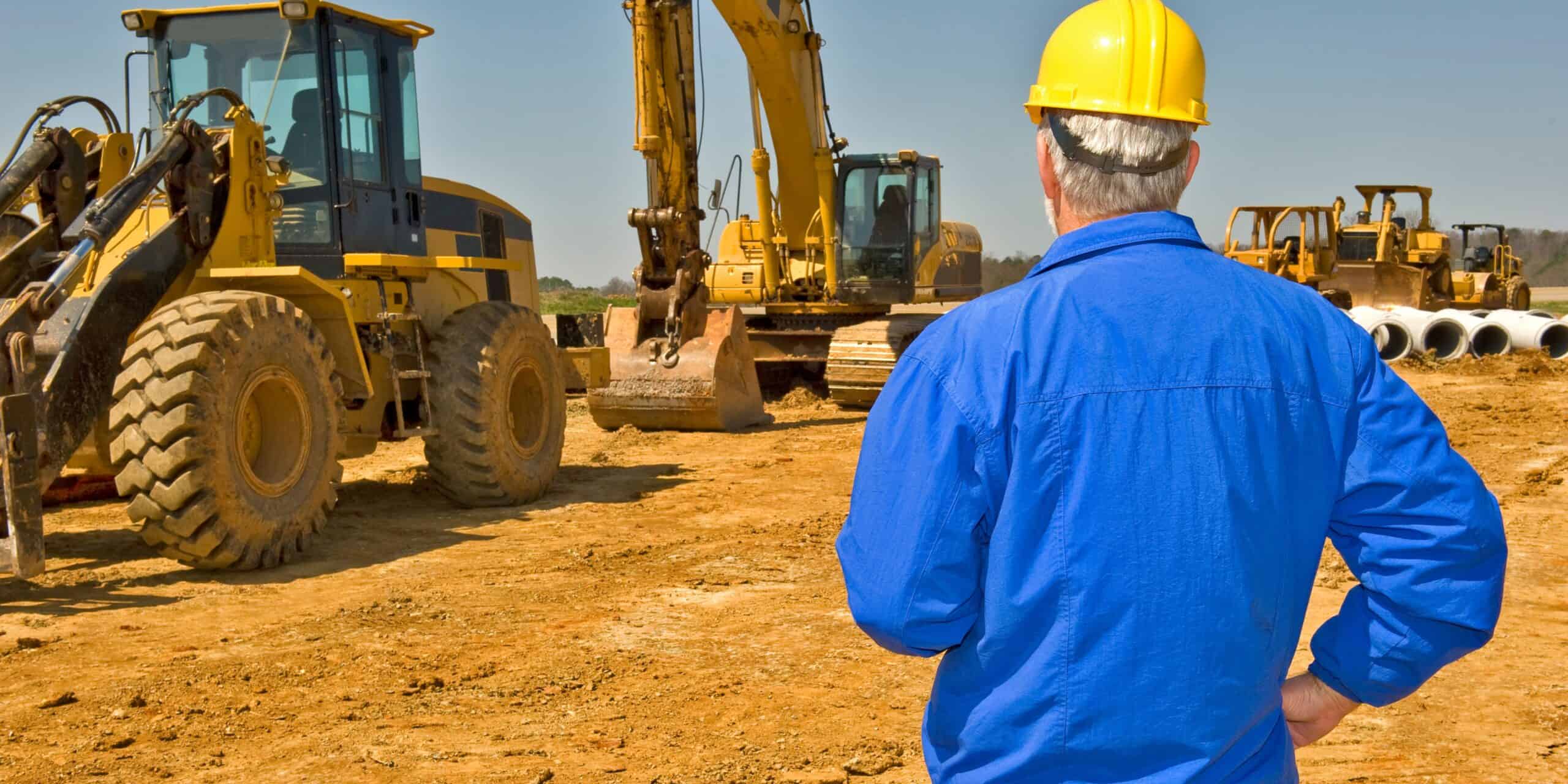If you’re planning to expand your fleet, learn what to look for in a heavy equipment supplier. This guide will help you make your criteria list so you can find the right equipment to get the job done. Here’s everything you need to know to find the best supplier for your needs.
What is classified as heavy equipment?
Heavy equipment refers to vehicles or machinery used for construction tasks. These machines and vehicles can complete heavy-duty tasks from forestry to mining. Some equipment that qualifies is quite large, such as those used in earthwork. Others are smaller and designed for specialized tasks, like small trenchers.
Types of heavy equipment
Each type of heavy equipment fulfills a specific task, generally in the construction, forestry, mining and industrial sectors. Here are some of the most common pieces of heavy equipment.
- Backhoes
- Bulldozers
- Cranes
- Excavators
- Forklifts
- Pavers
- Road graders
- Scrapers
- Skid steers
- Trenchers
- Wheel loaders
- Wheel tractor-scrapers
5 things to look for in a heavy equipment supplier
Whether you have a large fleet or a small one, take some time to find the best supplier based on your needs. Here are some things to look for in a supplier.
Equipment availability
Some suppliers specialize in one type of heavy equipment. Others have a lot full of everything you could ever imagine for any project type. Consider working with a supplier that has more equipment availability to build a valuable long-term relationship.
Using a supplier that constantly has to order equipment can lead to project delays. You want to know that what you need is on the lot, or can be, within a few days at most.
Large fleet availability
The best suppliers are ones with which you can build a long-term relationship. These suppliers have every type of heavy equipment you can imagine, and expertise to guide you toward the equipment that best serves your needs. While you might be looking for a specific type of equipment right now, it’s wise to find a supplier with a large fleet for quick scaling.
When reviewing the supplier’s fleet, consider whether they offer new, used and rental equipment. Having diverse fulfillment options helps ensure you have the on-demand resources you need to operate your business.
Ability to meet deadlines and time frame
When shopping for heavy equipment, you may need something right away for a specific project. Suppliers should understand and respect tight job deadlines and turnaround times. You should also expect responsive customer service, just in case something pops up that jeopardizes your timelines.
Variety of brand options
Various brand options offer different benefits to your company. You’ll find pros and cons associated with each brand as you shop for the equipment you need. Some considerations for brands may include:
- Performance in various weather conditions
- Fuel efficiency
- Engine type
- Reliability
- Total cost of ownership
- Maintenance requirements
Suppliers offering multiple brands empower you to select the best equipment for your needs instead of settling for whatever’s available.
Great customer service
From the moment you start communicating with the supplier, you should feel like its only customer. You want a company that will handle any potential issue and provide an honest, straightforward experience.
The company should be responsive, help you plan for the long term, and be prepared to order any equipment you need.
The supplier should provide a single point of contact to handle your business and provide fast assistance when questions or concerns arise. Your contact will have ready access to account information, and can help you keep track of your fleet’s maintenance requirements. This individual should also be able to anticipate and provide insights into potential future needs.
Other considerations when purchasing heavy equipment
Purchasing heavy equipment isn’t a task you can take lightly. It’s a large investment, so review these additional considerations before making a final decision.
Site conditions
Where, when and how your machinery is used may narrow down the brand or equipment package you need. Make a list of criteria based on site conditions to find the best equipment for the job.
Heavy equipment budget
Review your financials to build a budget for your heavy equipment needs. Your budget may dictate whether you can purchase new or used equipment, and which brand you select. It can help guide agreement negotiations with your supplier.
Your ability to secure financing may also factor into your selections. Some suppliers offer in-house options or partner with financial institutions to make the process easier for you.
New, used or rented equipment
The decision to buy new, buy used, or rent equipment is often budget-dependent and can vary from project to project. Finding a supplier that offers all three options can be a smart move in the long term.
Many suppliers service and rigorously inspect used equipment before selling it off, so you may find good deals on like-new equipment in some instances. When you have long term needs and want to ensure your machinery is up to the task, new equipment may better serve your needs.
Building supplier relationships for your heavy equipment needs
Once you’ve found a supplier that meets your criteria, stay in contact and consider using them to maintain your equipment to strengthen the relationship. You’re likely to have future heavy equipment needs that they can fulfill within your budget and time constraints.
FAQ
The most common causes of heavy machinery equipment failure include improper operation, lack of preventive maintenance and inattentive equipment monitoring.
Wheel loaders are the most profitable piece of heavy equipment because they’re extremely flexible.
Motor graders are the hardest piece of equipment to operate because they’re difficult to drive.
Sign up for a FreightWaves e-newsletter to stay informed of all news and trends impacting supply chain careers and operations.



